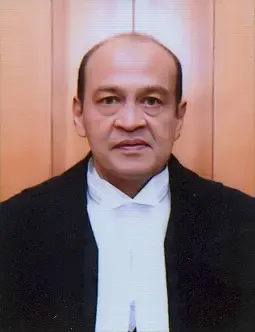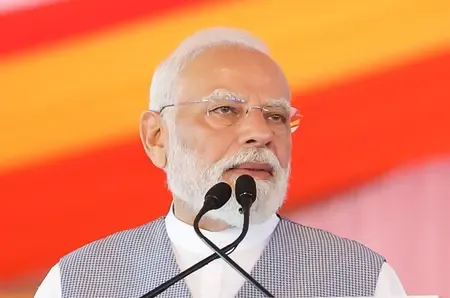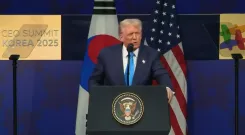Why Have 145 Lok Sabha MPs Signed an Impeachment Notice Against Justice Varma?

Synopsis
Key Takeaways
- 145 MPs united to file an impeachment notice.
- The motion targets Justice Yashwant Varma amid corruption allegations.
- This is a historical moment as it could be the first impeachment of a High Court judge in India.
- Article 217 outlines the process for judicial removal.
- Justice Varma has denied any wrongdoing.
New Delhi, July 21 (NationPress) In an unprecedented display of unity, 145 Members of Parliament from both the ruling and opposition factions came together on Monday to file an impeachment notice against Justice Yashwant Varma, which was presented to Lok Sabha Speaker Om Birla.
The impeachment motion targets the judge, who is under scrutiny due to allegations regarding the recovery of burnt cash found in his Delhi residence back in March. Among the notable signatories are Rahul Gandhi, Anurag Thakur, Ravi Shankar Prasad, Rajiv Pratap Rudy, P.P. Chaudhary, Supriya Sule, and K.C. Venugopal.
This notice, filed under Articles 217 and 218 of the Constitution, has garnered support from various political parties, including BJP, Congress, Telugu Desam Party (TDP), Janata Dal (United), Janata Dal (Secular), Janasena Party, Asom Gana Parishad (AGP), Shiv Sena (Shinde), Nationalist Congress Party, and CPI(M), among others.
With significant backing, the impeachment of a sitting High Court judge—an unprecedented event in independent India—will likely undergo examination by Parliament under Articles 124, 217, and 218 of the Constitution.
Article 217 protects judicial independence by stipulating that a High Court judge can only be removed for 'cause' (which includes proven misbehavior or incapacity) and requires a two-thirds majority from both Houses of Parliament.
The process for removing a judge, as outlined in Article 124(4) of the Indian Constitution, indicates that a judge can only be dismissed by the President after both Houses have submitted a request for removal.
According to constitutional guidelines, an impeachment motion may be initiated in either House of Parliament. For the motion to progress, it requires at least 50 Rajya Sabha MPs to sign it, while the Lok Sabha mandates a minimum of 100 signatures.
No judge has faced impeachment in independent India despite five prior attempts. The last impeachment effort, which occurred in 2018, involved former Chief Justice of India Deepak Misra, who faced allegations of administrative misconduct and biased case allocation.
Justice Varma has been at the center of controversy since the discovery of the burnt cash on March 15 in an outhouse of his allocated official residence while serving on the Delhi High Court. This incident has raised serious concerns about corruption at the highest levels of the judiciary.
Recently reassigned to the Allahabad High Court, Justice Varma has denied any connection to the cash and has dismissed the allegations against him and his family as 'absurd'.









